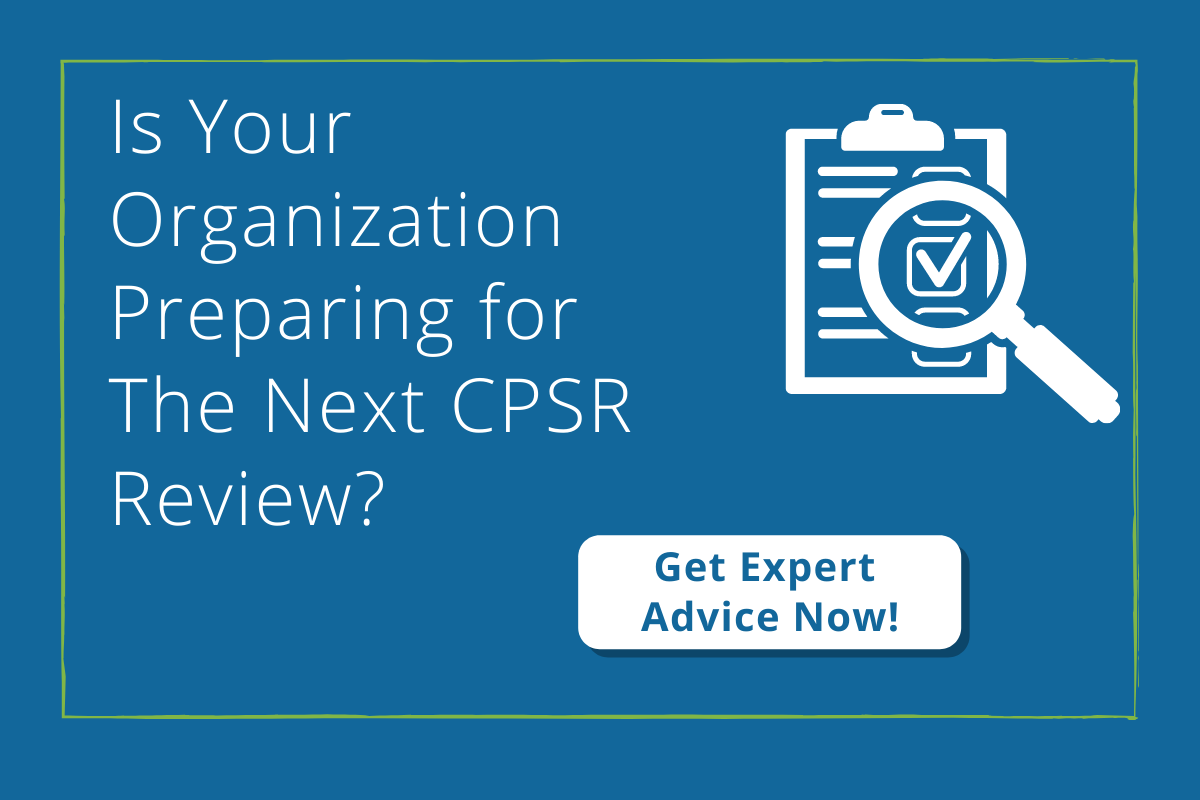Summary
Our CPSR Experts created a CPSR audit checklist of the 12 purchasing system essentials that every company must consider as they assess their system and prepare for their next Contractor Purchasing System Review.
Our Team supports Government Contractors throughout the Contractor Purchasing System Review process and beyond.
How To Prepare for Your Contractor Purchasing System Review - CPSR Audit
By Stephen ‘Chase’ Kunk, J.D. - Managing Partner
The Defense Contract Management Agency (DCMA) has defined the Contractor Purchasing System Review (CPSR) Group’s mission – “Ensure that [Government] suppliers’ have purchasing systems in place that contribute to effective subcontract management. Effective subcontract management includes development of, as well as performance to internal policy and procedures, contract requirements, public law and adequacy of cost and prices analyses performed on subcontractors.”
Consistent with this mission statement, the Federal Acquisition Regulation (FAR) CPSR objective in Subpart 44.3, Contractors’ Purchasing System Reviews, states that the “objective of a contractor purchasing system review (CPSR) is to evaluate the efficiency and effectiveness with which the contractor spends Government funds and complies with Government policy when subcontracting….”
Understanding DCMA’s CPSR mission and objective, government contractors must realistically evaluate their current purchasing system to make sure they comply with applicable federal laws and regulations governing government contracts and substantiate CPSR compliance. As part of this evaluation, contractors should use the primary authoritative regulations and DCMA guidance around the Contractor Purchasing System Review, including, without limitation:
- DFARS 252.244-7001, Contractor Purchasing System Administration
- FAR Subpart 44.3, Contractors’ Purchasing System Reviews
- DCMA CPSR Policies and Procedures Checklist
- DCMA CPSR Guidebook
What is a CPSR Review?
A Contractor Purchasing System Review is performed by the U.S. Government in accordance with FAR Part 44. FAR 44.101 defines the CPSR as “the complete evaluation of a contractor’s purchasing of material and services, subcontracting, and subcontract management from the development of the requirement through completion of subcontract performance.”
Made simple, a CPSR is a review of a contractor purchasing system. The catch – the review is not focused on the existence of policies, procedures and practices but rather, the adequacy of those existing policies, procedures and practices. For more information pertaining to the question – What is a CPSR – see Capital Edge’s upcoming thought leadership focused on the What, When, Why, Where and How of the CPSR.
Download our CPSR Essentials Checklist!
12 Tips to Prepare For Your Next CPSR Audit
Capital Edge continually supports contractors through the entire Contractor Purchasing System Review process. Through these efforts, we have identified 12 purchasing system essentials that every company must consider as they assess their system and prepare for their next CPSR Audit.
1) Document, Document, Document
Documentation with a CPSR Audit is critical. This theme is a common thread throughout the CPSR, but everything starts with the purchasing policies and procedures. Not only do you have to demonstrate CPSR compliance with the FAR, DFARS, public laws and the expectations of the DCMA CPSR Policies and Procedures Checklist and DCMA CPSR Guidebook in documented policy and procedure, but you also must make sure you actually do what you say you do in practice.
Based on our experience, a lot easier said than done. Further, we estimate that at least 75% of the risk to the contractor in a CPSR is directly associated with what is in the procurement file – the existence and adequacy of the documentation that substantiates CPSR compliance for that transaction.
2) Compete, Compete, Compete
You must select subcontractors on a competitive basis to the maximum practical extent, consistent with the objectives and requirements of the contract.
A systemic lack of competition, which can be a CPSR finding, only raises red flags and increases the CPSR Team’s scrutiny, potentially exposing you to a variety of consequential findings in a CPSR (e.g. insufficient file documentation, inadequate source justifications, price analyses and negotiation memoranda, and Truth-In-Negotiations Act and Cost Accounting Standards non-compliance).
3) Price Analysis
Increase your company’s competition metrics by documenting fair and reasonable price based on a competitive price analysis technique and avoid the risk of those consequential findings mentioned above (FAR 15.403-1(c)(1), FAR 15.404-1(b)(2) and FAR 44.303(b)).
4) Evidence
Support your single or sole source justifications with “valid” rationale, compelling evidence, and reasoning. The classic “directed by the PM or COTR” or emergency procurements resulting from your company’s failure to advance plan aren’t going to fly.
5) Be Careful Using Historical Comparisons
Be cautious in how you employ (and document!) comparison to historical prices paid and competitively published pricelist techniques (FAR 15.404-1(b)(2)(ii) and (iv)). Comparing the subcontractor’s proposed price to historical prices paid by your company for the same or similar service or item provides the CPSR Audit Team the opportunity to dig into the historical price paid files and poke at the validity of the basis of comparison.
As for pricelist comparisons, be aware of the FAR 8.404(d) class deviation which has been adopted as a directive to not merely rely on a General Administration Services Schedule contract published prices as a comparison, but to instead engage in further, independent price analysis to determine price reasonableness.

6) Engage in Price Negotiations
At a minimum, in a CPSR Audit, expect to have documentation available to demonstrate how your organization engaged in and documented price negotiations if your initial price analysis does not justifiably demonstrate fair and reasonable price. Further, in a non-competitive procurement, the CPSR Team historically expected you to conduct price negotiations as a means to further buttress the price reasonableness determination. It also helps if the processes utilized, and the documentation generated aligns with what you say you do in Number 1 above!
7) Develop, Document, And Support Commercial item Determinations
Develop, document, and support your “commercial product” and “commercial service” determinations based on the plain language in the FAR 2.101 commerciality definitions. Merely checking a box in a commerciality determination form followed by a conclusory statement of commerciality will not pass muster. Also, remain cognizant of the “technical analysis” expectations with “of a type” and minor modifications to commercial products and services.
8) Monitor With Internal Reviews
Successful purchasing systems have established internal procurement file compliance reviews, which are typically based on predetermined risk factors in pre-and-post award phases.
If you can show DCMA you are monitoring the system effectively, identifying issues and implementing corrective actions, you immediately establish more credibility with the CPSR Team, while also improving your file documentation and complying with the DFARS internal review requirement.
9) Train, Train, Train Your Staff!
Train the new hires, the entire department and any other functional areas involved in the purchasing system annually. Hold recurrent training when your internal compliance reviews identify any issues. Also, hold training on changing regulations, laws and Government expectations related to your purchasing system.
Knowledge is power. And remember – The ability to demonstrate occurrence of training is critical; therefore, retention of training records (e.g. training schedules, sign-in sheets, etc.) is essential.
10) EPLS Is No Longer Acceptable
The former Excluded Parties List System (EPLS) pre-award 3-check approach is no longer acceptable to satisfy the FAR 52.209-6 debarment requirement. When applicable, ensure you are securing time of award debarment disclosures from the subcontractors. DCMA is accepting several options in documenting this time of award requirement.
11) Keep Everything "CPSR Relevant" In The Procurement File
The procurement file should be the central repository for all procedural, FAR, DFARS and public law file documentation requirements. We’ve seen clients unknowingly violate a public law reporting requirement dozens of times when the failure to report and resultant violations could have been avoided had the procurement professional simply been required to retain record of the report in the procurement file.
12) Provide Accurate Data
Contractors oftentimes get the CPSR audit off on the wrong foot because they are unable to provide accurate data and/or define the subcontract/purchase order universe in response to the CPSR Data Call.
If you can’t identify reliable data and the proper universe of files for your response, it certainly doesn’t instill much confidence in the Government’s ability to rely on your system and increases their sensitivity during the review. To the extent possible, make sure your system(s) is configured appropriately and robust enough to track, segregate and report the data required (e.g. award value, current value, contract and subcontract type, etc.) in the CPSR Data Call.
Otherwise, you should expect to undertake a painful manual review and sorting of data generated within the CPSR Team’s aggressive response timeframe.



